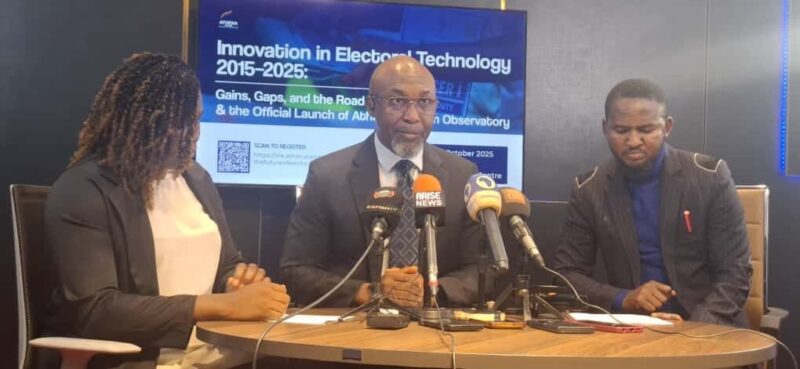The Athena Centre for Policy and Leadership has announced a major initiative aimed at bolstering the credibility of Nigeria’s elections, starting with the upcoming off-cycle polls in November and extending to the crucial 2027 general election.
The Centre’s Chancellor and former minister of Aviation, Chief Osita Chidoka, disclosed this in Abuja on Tuesday during a press briefing to unveil a landmark report on electoral technology and a new monitoring platform, the Athena Electoral Observatory, scheduled for launch on October 6, 2025.
Chidoka stated that the report, titled ‘Innovations in Electoral Technology, 2015 to 2025: Gains, Gaps and the Road Ahead,’ was designed to be a national conversation on the future of Nigeria’s democracy, bringing together politicians, INEC officials, civil society, development partners, and security agencies.
“Our mission is to ensure that every innovation strengthens, not undermines, the legitimacy of Nigeria’s elections,” Chidoka said.
He said that the report was the culmination of three pre-event workshops held in September with key stakeholders and integrated findings from a nationwide opinion poll conducted by NOI Polls, offering fresh citizen perspectives on electoral technology and trust ahead of the 2027 elections.
The former minister of Aviation said that a key highlight of the October event will be the formal launch of the Athena Electoral Observatory, which he described as a permanent platform for electoral accountability.
“The Athena Electoral Observatory will serve as Nigeria’s independent lens on elections, objective, evidence-based, and citizen-focused.
“The platform will monitor Nigeria’s elections and election technology, track global innovations, provide evidence-based assessment of reforms, and deliver independent insights,” he said.
Responding to questions from journalists thereafter, Chidoka clarified that the Centre’s review was strategically timed to set a clear, evidence-based agenda for the next chairman of the Independent National Electoral Commission (INEC).
“This is a review of INEC’s technological innovations over the past 10 years. We are going to be looking at all the technology INEC has introduced and how it has functioned in our electoral journey.
“Are there gains? Are there gaps? And how do we take it forward? We have been conducting post-election audits. We’ve done them in four states now and also in some by-elections. We’re going to use those post-election audits as a benchmark to see how INEC’s technology has helped us.
“Our expectation is that this review will help us know whether these INEC technologies are relevant to the electoral process. What about them should we sustain and what gaps should we close? Inevitably, this is now setting an agenda for the new chairman. We don’t want to wait for the new chairman to come.
“We want to review what has happened and we want to hear from INEC what the challenges are and why some of these gaps exist, so that the new INEC chairman comes on board with clear clarity about what is working and what needs to be improved,” he explained.
The Chancellor emphasised that the Centre’s work was driven by data, not speculation, saying, “At the Athena Centre, we are driven by data. We are driven by evidence. We are driven by objective, verifiable information.”
He further stated that their past post-election audits have even led to the naming of specific polling officials who tampered with results, and that the findings would provide a practical template for immediate and long-term reform.
“This offers us an opportunity to ensure that what is good with the INEC technology is sustained. The gaps that are identified are put forward to be fixed before we get to 2027,” he stated.








